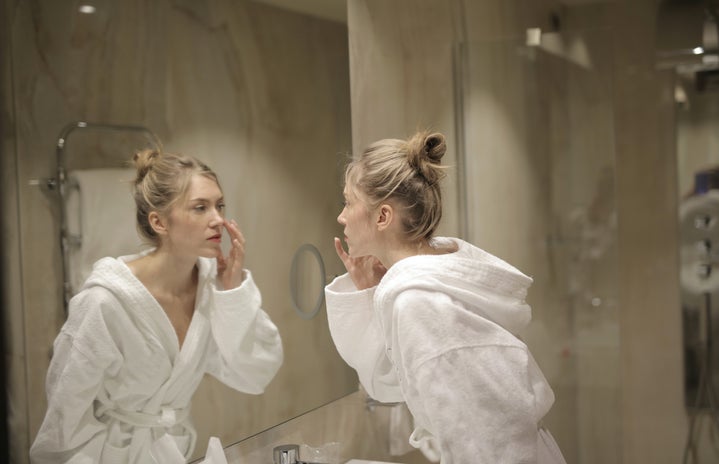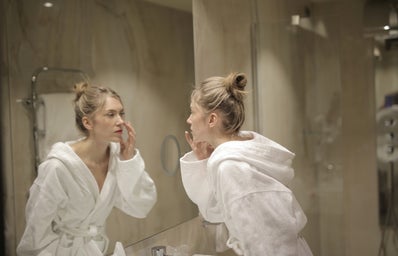The terms “influencer” or “content creator” are well known in this day and age, defined as someone who has a large social media presence with the ability to persuade others based on their recommendations. There are now a variety of platforms in which these creators exist, with YouTube, Instagram and TikTok being the larger ones. However, the ability to edit and create only the most aesthetically pleasing content is one of the most important aspects of the job. The more aesthetic and desirable the content, the easier it is to influence viewers that they need the product being endorsed or the lifestyle promoted. This seems like basic marketing, however, with how widespread and constant social media has become, it’s a recipe for disaster for users’ mental health.
TikTok is a platform made for those with a short attention span. You scroll through videos only a few seconds long, which seems harmless, however constant scrolling draws you into the platform more and more and suddenly you’ve been on your phone for hours and have taken in an extreme amount of content. Subconsciously you’ve been influenced. You see girls with clear skin doing makeup tutorials, perfectly neutral-themed apartments and gym girls with slim waists promoting a new green juice. You may not realize it, but everything you consume from social media stays with you in some way. Next time you’re in your bedroom, you may think “wow my room sucks, it isn’t nearly as aesthetic as that girl’s room on TikTok.”, or when you’re getting dressed you may realize your wardrobe isn’t as good as that one you saw in a video you watched. Not only does this influence your shopping habits but it also influences how you perceive yourself. The number of times I’ve heard someone compare themselves to someone they saw online, saying they want some feature they have or some aspect of their life, is countless. This constant comparison lessens your own self-worth and, in turn, influences your mental well-being.
A popular trend within the last year was the “clean girl” aesthetic. This aesthetic consists of neutral tones, clear skin, minimal decor and a seemingly put-together lifestyle. This is supposedly promoting health, wellness and leading a balanced life. Realistically, this lifestyle is extremely unmaintainable for those who aren’t well-off influencers with money and PR packages coming to them with free products. The constant intake of content promoting this aesthetic lifestyle makes those who don’t fit under this aesthetic feel as though their life is “messy” in comparison. In reality, the majority of individuals probably don’t fit under this “clean girl” aesthetic, it just seems so on social media. Even those who create the “clean girl” content aren’t under this aesthetic 24/7; they simply create content that makes it seem like they’re always living an aesthetic, put-together lifestyle.
Social media has its upsides and is a community that can be used for good depending on the content created and viewed. There are many relatable, positive and “real” influencers who post content with the intent to make people feel less alone in how they live their lives which can create a sense of community. However, aesthetic content creators with seemingly perfect lives do more harm than good. It may be pleasant to watch and aesthetic to the eye, but the intake of this content has negative effects on one’s mental health whether you realize it at the time of consumption or not. It creates comparisons between your life and others, shifting the focus from everything good in your life to thinking “what can I do to make my life like hers?” In the end, social media influencer consumption is doing more harm than good. Are you aware of how it’s influencing you?


